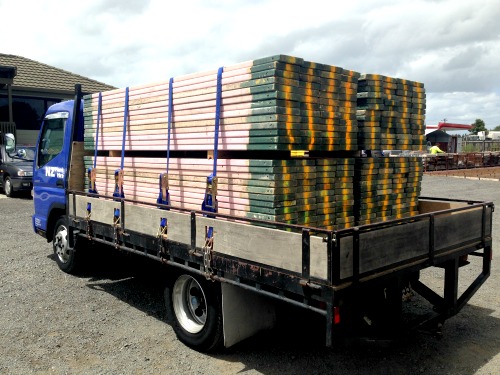Best Practice Guide for ‘General Maintenance of Planks’
Best Practice Guide for ‘General Maintenance of Planks’
Regular inspection and strength testing is recommended for each scaffolding plank, whether you own your planks or contract plank hire on your construction site. The regularity of inspection and strength testing is highly dependent on the frequency and type of use.
The following is an over view of the key points straight from the Scaffolding in NZ Good Practice Guidelines that GHL follows. These good practice guidelines provide advice on the safe design, use, and maintenance of scaffolding. They set out WorkSafe New Zealand’s (WorkSafe) expectations about how to comply with health and safety law, including the Health and Safety at Work Act 2015 and the Health and Safety in Employment Regulations 1995.
General Maintenance of Scaffolding Planks

Visually inspect planks before use.
Look for:
- Laminations or separation of the layers
- Any warping, twisting, breaks and splits
- End fixings missing or damaged
- Deep burns
- Oil stains
- Projecting nails
- Rot or fungal decay
- Saw cuts and notches
All these marks and imperfections can decrease the structural strength of the plank and thereby void the safety of the scaffolding. They may also point to other underlying imperfections that could cause further weakening of the plank. A scaffolding plank showing any of these signs of wear and tear, should be withdrawn from use immediately and tested using the mechanical test to measure the planks strength.
Storing your planks
Correct storage of unused planks is essential in maintaining the integrity of the plank for future use and reduces the likelihood of reduced service life due to decay. Planks that have been wet over an extended period of time (months), is likely to result in fungal decay.
- Fillet stack damp or wet planks in a well-ventilated area, to allow them to dry before being stored for future use.
- Store dry scaffold planks under cover
Testing
- Mechanical testing can be used to test the strength of each plank and including a means of identifying when the plank was last tested.
The regularity of inspection and strength testing is highly dependent on the frequency and type of use.
We are very happy to say GHL Plank Hire Ticks all the Boxes. You can rely on GHL planks for safety!
Still need some help deciding whether to buy or hire your temporary fencing? GHL can provide quotes for both temporary fence hire and sales, so you can make an informed, cost-effective decision. Call us now on 0800TempFence or visit www.GHLTempFence.co.nz
Click here for more information on Temp Fence Hire
Click here for more information on Temp Fence Sales

